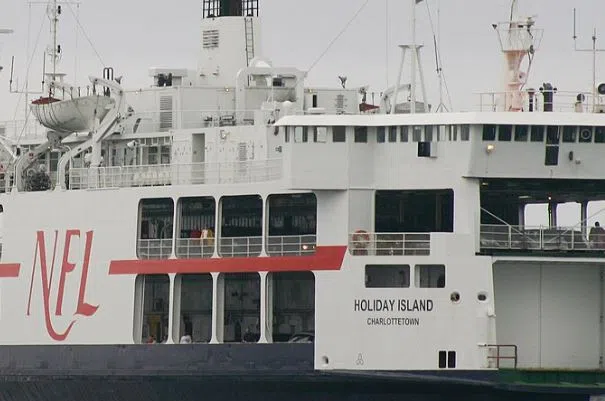
The Holiday Island was written off after a fire in 2022. Photo: TSB Canada.
The fire that destroyed the Holiday Island ferry in July 2022 is part of a bigger problem with how Canada handles emergencies at sea, according to a new report from the Transportation Safety Board.
The ferry was carrying over 250 people between Nova Scotia and Prince Edward Island when a fire broke out in the engine room. Investigators say the fire started because of a leaking fuel part that had been temporarily patched several times in the month before the trip. When the last patch failed, fuel sprayed onto hot engine parts and caught fire.
The crew tried to put out the flames, but the report says there were serious problems. The automatic fire suppression system didn’t work properly at first, and when it was finally turned on by hand, air was still getting into the engine room. That meant the fire kept burning for hours, even after everyone except emergency responders had left the ship.
Despite these challenges, all passengers and most of the crew made it safely to shore, partly thanks to the fact the ferry was close to land and the weather was calm. But the Holiday Island was so badly damaged it was declared a total loss.
What concerns the TSB more than the fire itself is how many parts of the response went wrong—and how similar problems have been found in past ferry incidents.
The board says there was confusion about who was legally responsible for safety decisions. While Northumberland Ferries operated the ship, the Government of Canada—through Transport Canada—was still officially listed as the owner. That mix of roles led to gaps in communication and oversight, the report says.
On top of that, some emergency equipment wasn’t used properly, instructions were unclear, and crew members didn’t all have the same level of training. Even the number of passengers on board was miscounted. At first, the ferry’s captain reported 182 people, but the final count was 236—a difference of 54.
TSB officials say this fire could have ended much worse. It only avoided tragedy because it happened close to shore in daylight with calm seas.
The board is now recommending that Transport Canada issue clearer guidance to ferry owners and operators about what they’re responsible for and how to meet those requirements.
It’s also launching a national investigation into how vessel fires are handled across Canada.
According to the TSB, nearly 400 fires on commercial ships have been reported in the past 10 years. They say unless changes are made, crews and passengers could continue facing unnecessary risks.








